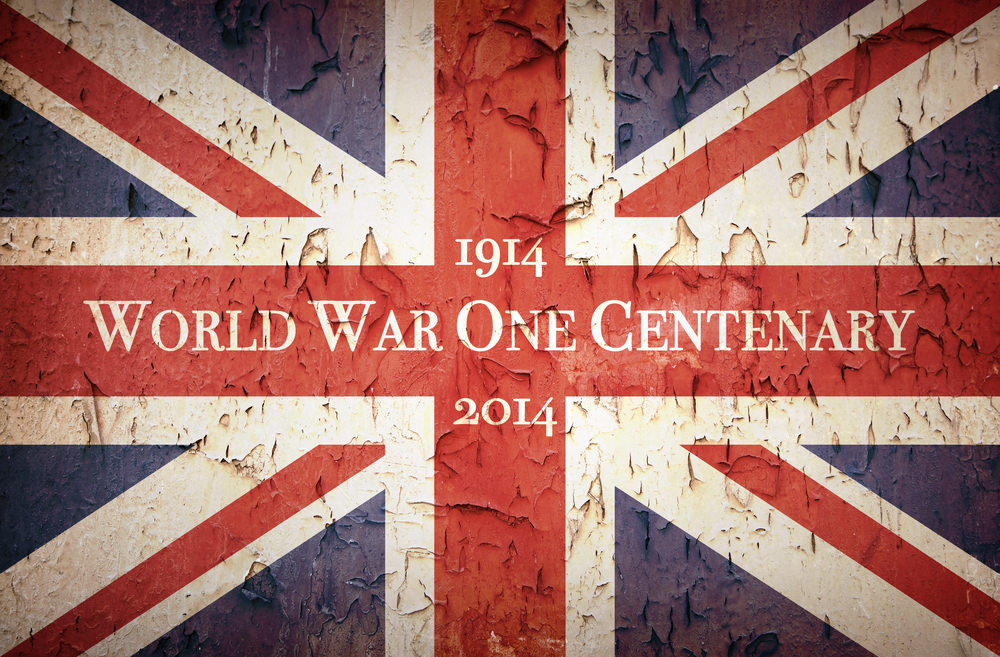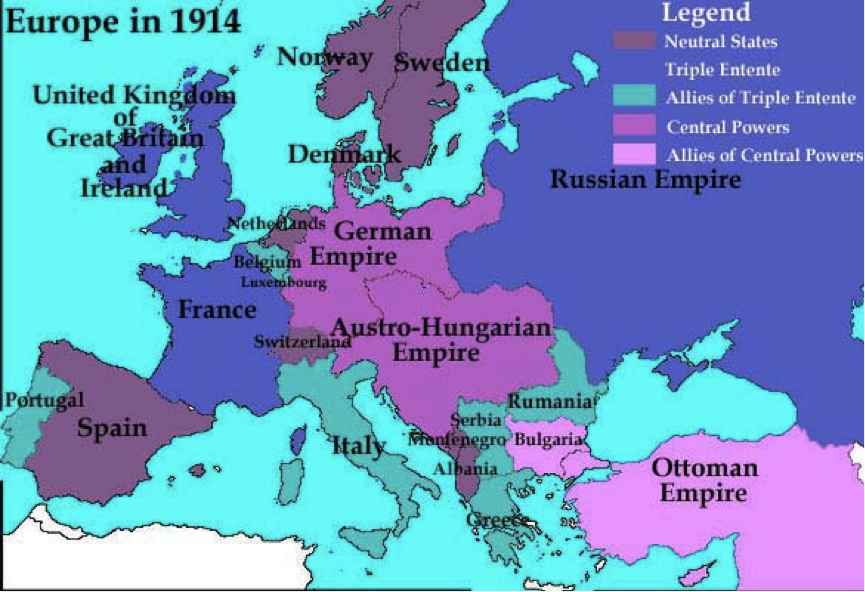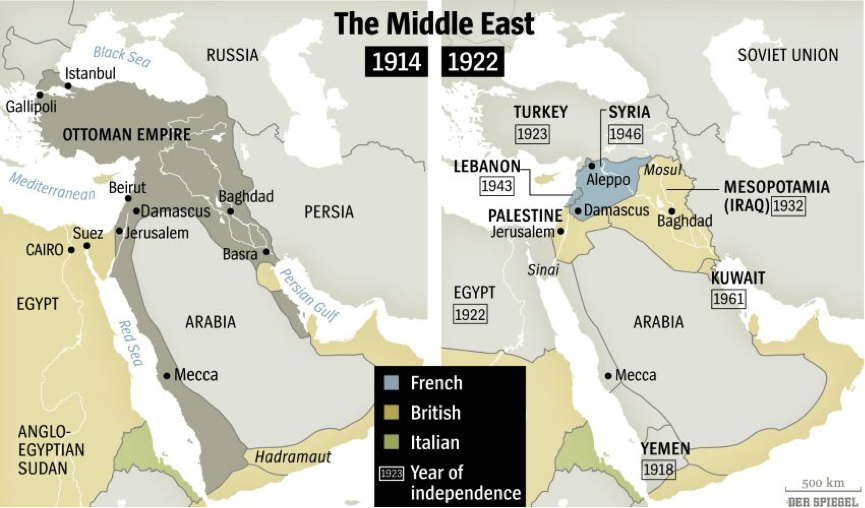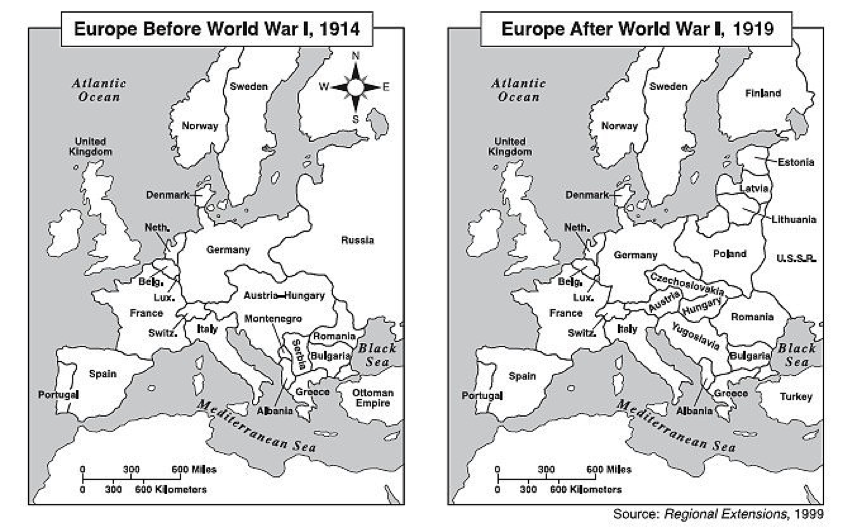#Islam
WWI Centenary: What should Muslims learn?
Published
By
Hira Amin
100 years ago, the world witnessed a catastrophic event that was to spark global repercussions. In many parts of the world its legacies fuel violence and conflict to this day. World War I (or the Great War)[1] was the greatest event of its time; it marked a distinct shift in warfare, ideology and international relations and became the prototype of subsequent wars. At the time, it was the bloodiest war in human history and claimed the lives of nearly 10 million combatants and just over 20 million combatants were seriously wounded, not to mention the civilian death toll.[2] As well as being a tragedy in its own right it became a pre-condition for further calamities such as WWII, which claimed even more lives. No previous century witnessed the same amount of bloodshed as the 20th century.
This week, Britain along with many other countries will begin to commemorate the First World War Centenary. What led to WWI? Why did it last for four years? What was the result? And what should we as Muslims learn from this event? This article will aim to briefly answer these questions.
Background to WWI:
Keep supporting MuslimMatters for the sake of Allah
Alhamdulillah, we're at over 850 supporters. Help us get to 900 supporters this month. All it takes is a small gift from a reader like you to keep us going, for just $2 / month.
The Prophet (SAW) has taught us the best of deeds are those that done consistently, even if they are small. Click here to support MuslimMatters with a monthly donation of $2 per month. Set it and collect blessings from Allah (swt) for the khayr you're supporting without thinking about it.
In the 19th century, the Great Powers – Britain, France, Hungary-Austrian Empire, Prussia and Russia – lived in relative peace due to the “Concert of Europe”, which was a system of regulation of international affairs. It emphasised their shared goals and created stability largely due to the fact that each power had more to gain by upholding it.[3] This stability allowed Europe to focus their energies abroad and they began to dominate and colonise other areas for their own gains (see map 1). Towards the end of the 19th century, the rapid pace of modernisation was striking. Modernisation flowed as a consequence of scientific, French and industrial revolutions characterised by rationalisation, urbanisation and industrialisation. They exported their steam engines, machine guns and administration to sustain their supremacy abroad. With new technologies and industrial capabilities they also began to develop their own armies and weapons in what became an arms race between the Great Powers.

Map 1: Colonial empires in 1900. From the map one can see Britain was the largest and strongest empire (their colonial territory was over 100 times its home territory) and this gave rise to the famous phrase “the sun never sets on the British Empire.” Africa was 90% under European control mainly by Britain and France. [4]

Map 2: Europe in 1914 before WWI. [5]
Who was to blame?
Broadly speaking historians differ on the extent to which Germany is to blame for the war. Some say Germany was fully responsible since even pre-1914 they had prepared offensive war plans to dominate Europe– known as the Schlieffen Plan. Also, after Austria-Hungary declared war with Serbia, Germany put this offensive war plan in action and declared war with Russia and France just three days later without exhausting other non-military options.[6]
However, other historians locate the aggressive German policy within a much broader picture of the changes in international relations and the race to develop high tech arms bolstered by industrialisation and modernisation (mentioned above). Therefore, this group states that each Great Power contributed to the increasingly tense atmosphere, but Germany is to shoulder more of the blame.
The War
The war lasted four years despite constant attempts for peace talks. As casualties mounted diplomatic solutions were rejected as it became difficult to end the conflict without significant gains to justify the war. Nevertheless, national solidarity for the war effort remained firm. 1917 was the turning point. Parts of the French armies mutinied and Russia underwent an internal communist revolution, which knocked them out of the war. America also intervened however only as an “associated” power, initially declaring war only on Germany and not their allies. America only entered the war as President of the U.S., Woodrow Wilson, had his own progressive ideas for the new world order and saw that Germany’s defeat was essential to his plan. Britain and France were also an obstacle to Wilson’s ideology, however Germany was a greater threat. Only by entering the war could America have influence in the final treaty. From July 1918 onwards, counter-attacks and the growing American army reversed the military situation. Germany’s armies retreated and the war ended on the 11th November 1918.
How should we commemorate WW1?
Prime Minister David Cameron has announced that £50m will be allocated for historic commemoration of the event and to “ensure the lessons learnt live with us forever.”[7] But what is this legacy? What are these lessons to be learnt? As the centenary approaches, new books, TV shows, school trips and websites about the war are developed. But what story will be told? What narrative? More importantly, for us as Muslims, what should we learn from this event?
There are two distinct narratives for WWI. The first is that it was a just war that the British can look back with nationalistic pride. The second highlights the tragic loss of life, the sorrow and futility of war; it showcases the war poets and the anti-war campaigners. Immediately after the war the former narrative dominated, however in 1964 with productions such as “O What a lovely war” the sentiment began to switch to the latter. 1964 was the beginning of a debate on how the British should remember the war and since then each anniversary resurrects this tussle.
However, this centenary some academics are calling for rising above this shallow good vs. evil binary view of war and replacing it with a nuanced forward-looking approach that sheds light on our contemporary modern world. Sir Hew Strachan – Oxford Professor of the History of War – calls us to use this centenary for a deeper analysis on war as a whole such as discussing difficult questions such as when is it right to go to war or intervene in a civil war by using WWI as a case study. [8]
In my humble opinion, in this four-year period, we as Muslims should also rise above this simple analysis of war and start to examine in more depth the effects of WWI. Today, it seems that the Muslim world is on fire, from Iraq to Palestine – to name only two. A lot of these issues have their roots in WWI.[9] Therefore, we need to analyse WWI in two interconnected ways. Firstly, by gaining a deeper understanding of how WWI shaped the modern world we live in today on a macro level, especially in terms of international politics and ideology. Political institutions such as the League of Nations (predecessor to the current United Nations) and ideologies such as nationalism, self-determination and modernity were either developed or underwent significant changes in this period. Ideological innovations guiding the course of politics is one of the key characteristics of the 20th century. These institutions and ideologies are the foundations of our contemporary world. Moreover, WWI was directly linked to the rise of Nazism, Fascism, the 1929 depression and WWII. Thereafter WWII terminated European world primacy, which ushered in the battle of the next two superpowers, the Soviet Union and the U.S. known as the “Cold War.” It culminated in the final supremacy of the U.S., which is where we are today.
Secondly, on a micro level understanding how these changes has affected us as Muslims. Post WW1 the most significant outcome for Muslims was the collapse of the Ottoman Empire and its division of land by the European powers. The Muslim world was quite literally carved up into new segments. To take a few examples, modern Iraq was originally three distinct Ottoman provinces. Yet the British arbitrarily combined the Kurds in the north and the Sunnis and Shias in the centre and south resulting in an unstable Iraq wracked with inter-communal tensions. Moreover, Palestine was promised to the Zionists despite warnings from the Americans – known as the King-Cramer report – that it will cause ethnic conflict. Lebanon’s borders were expanded by the French, which drastically shifted its demographics turning it into an area of religiously and ethnically diverse people. Originally dominated by Christians, the expansion of Lebanon and the influx of Palestinian refugees shifted the balance towards Muslims who – now more populous – began to voice their dissent against the dominant Maronite Christian government. [Note Christians were also divided into smaller sub-groups such as Greek Orthodox, Catholics etc. and Muslims were also divided into Sunnis, Shias and other groups such as the Druze.] The sheer diversity was one of the factors that contributed to the long Lebanese civil war from 1975 to 1990.

Map 4: Middle East before and after WW1 [10]
[1]WWI was originally called “The Great War.” Only after the Second World War the name changed to WWI to create a distinction.
[2] http://ww1facts.net/quick-reference/ww1-casualties/
[3] Smaller wars did break the general peace from time to time, such as the Crimean Wars, but they were small in scope and fought for limited objectives.
[4] http://users.humboldt.edu/ogayle/World_1914_empires_colonies.PNG
[5]http://www.anselm.edu/academic/history/hdubrulle/WWIIb/text/gradingandassignments/food/fdwk02b.htm
[6] It is important to note that all European powers also had war plans by 1910, yet the key difference is that they prepared for their own defence rather than an offensive attack.
[7] http://www.bbc.com/news/uk-19913000
[8] http://www.battleofideas.org.uk/2013/session_detail/7915 See Sir Hew Strachan’s speech
[9] It is important to highlight that this is not the same as saying the Western powers are fully responsible for the current turmoil. Rather the political decisions that resulted from WW1 were a precondition for the problems that were to come. Events did not have to unfold in the way they did because of WWI. The same applies to the macro level changes, WWII was not a direct consequence of WWI – other outcomes were possible – but it was a necessary precondition.
[10] http://www.spiegel.de/international/world/bild-946052-651551.html
[11] http://ifthenisnow.nl/nl/artikelen/vallen-en-opstaan-van-onze-democratie
Keep supporting MuslimMatters for the sake of Allah
Alhamdulillah, we're at over 850 supporters. Help us get to 900 supporters this month. All it takes is a small gift from a reader like you to keep us going, for just $2 / month.
The Prophet (SAW) has taught us the best of deeds are those that done consistently, even if they are small. Click here to support MuslimMatters with a monthly donation of $2 per month. Set it and collect blessings from Allah (swt) for the khayr you're supporting without thinking about it.
Hira Amin is a British muslimah of Pakistani descent. Despite originally being a mathematics graduate, after a few years inside the corporate world, she decided to change paths drastically to studying history. She completed her Masters in the History of International Relations and is currently undertaking her PhD at the University of Cambridge. Her focus areas are South Asian Muslims and their migration to the UK, Islam’s interaction with Western imperialism and modernity, feminism and 20th century international history.


30 Nights with the Qur’an: A Ramadan Series for Muslim Teens

Keep Zakat Sacred: A Right Of The Poor, Not A Political Tool

Far Away [Part 9] – Crane Dances In The River

From The MuslimMatters Bookshelf: Ramadan Reads For 1447 AH

Courting The Crosswinds: The Tragedy Of Saif Al-Islam Qaddafi

[Podcast] Should Muslims Ally with Conservatives or Progressives? | Imam Dawud Walid

How to Make this Ramadan Epic | Shaykh Muhammad Alshareef

[Podcast] The Parts of Being an Imam They Don’t Warn You About | Sh Mohammad Elshinawy

[Podcast] Guardians of the Tradition: Muslim Women & Islamic Education | Anse Tamara Gray

Iron Principle Under Pressure: A Profile Of Naledi Pandor

[Podcast] Guardians of the Tradition: Muslim Women & Islamic Education | Anse Tamara Gray

How to Make this Ramadan Epic | Shaykh Muhammad Alshareef

[Dhul Hijjah Series] Calling Upon the Divine: The Art of Du’a (Part 1)

IOK Ramadan 2025: Four Steps | Sh Zaid Khan

IOK Ramadan 2025: Do Your Best | Sh Zaid Khan
Trending
-
#Current Affairs4 weeks ago
[Podcast] Should Muslims Ally with Conservatives or Progressives? | Imam Dawud Walid
-
#Current Affairs1 month ago
Op-Ed: From Pakistan To Gaza – Why Senator Mushtaq Ahmad Khan Terrifies Power And Zionism
-
#Culture1 month ago
The Muslim Book Awards 2025 Winners
-
#Islam3 weeks ago
How to Make this Ramadan Epic | Shaykh Muhammad Alshareef










Sara
August 5, 2014 at 3:32 AM
thanks for sharing
Ahmed
August 5, 2014 at 12:56 PM
There is an excellent lecture by Yasir Qadhi on Youtube about 1914 and how it continues to impact the Muslim world today. For those interested: http://www.youtube.com/watch?v=qh9awD5KwNY
Hyde
August 5, 2014 at 2:20 PM
Excellent analysis. The pre-modern Muslim history begins with this era especially concerning the events that are happening in the M.E.
gopithomas
August 6, 2014 at 4:29 AM
why do you have to view it from a Muslim perspective — it was not a war based on religion…
Hyde
August 7, 2014 at 3:54 PM
But certainly the consequence reverberated officiously throughout the Muslim world.
Lyn Crossley
August 10, 2014 at 6:02 AM
WW1 had a huge impact on the Middle East as it was divided up as part of post-WW1 negotiations between the “victors” mainly UK and France. Jordan and Iraq were established by the British, the French attempted to control Lebanon and Syria.
How does one separate politics, culture, racism and religion? They are interconnected – for example Palestine and Iraq – and Muslims are automatically stereotyped in the US and Europe resulting from a negative mix of politics, culture, racism and religion.